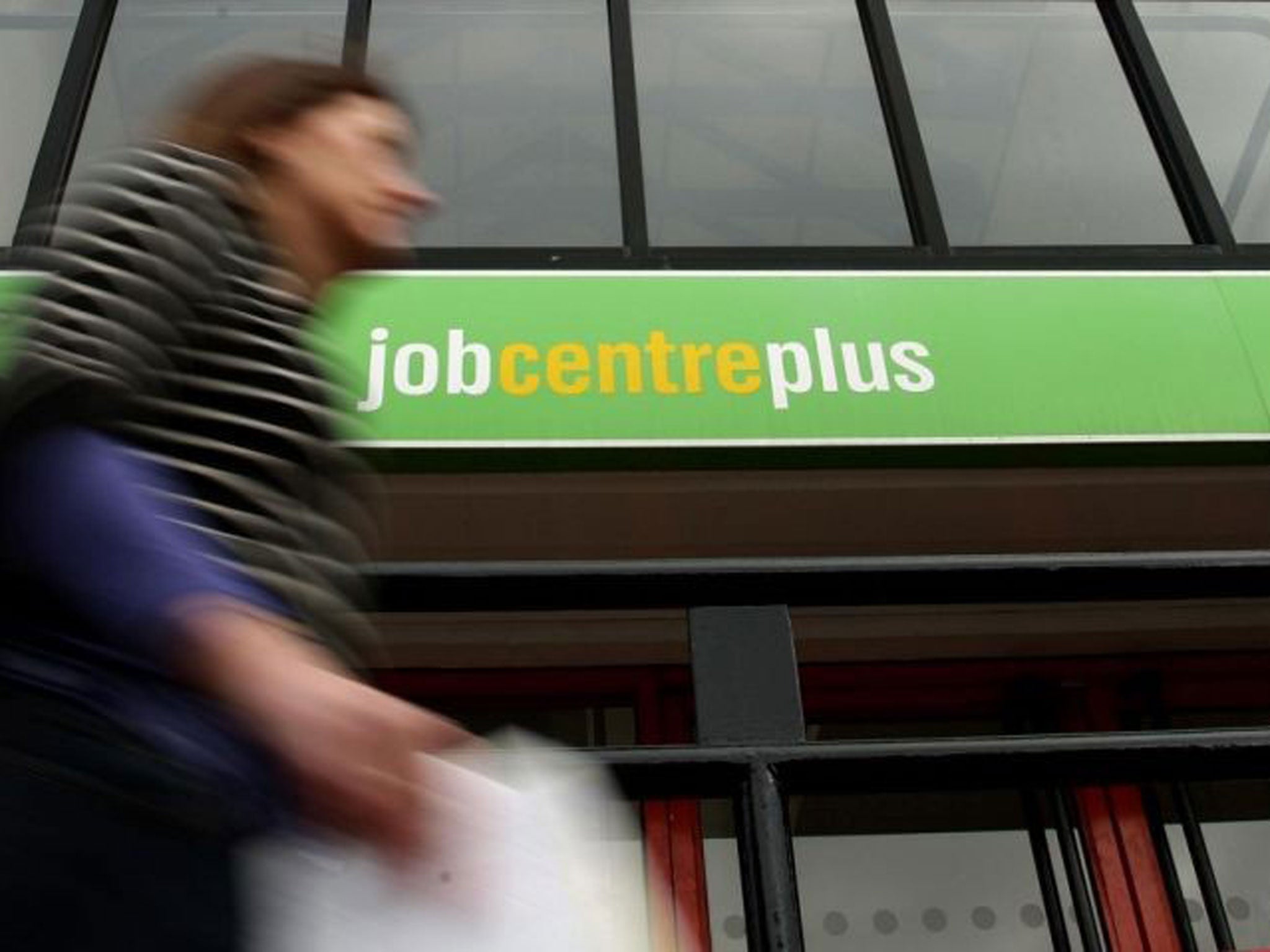Number of people in work reaches record high of almost 30m after new fall in unemployment
Biggest monthly fall in jobseeker's allowance claimants for 16 years

The number of people in work has reached a record high of almost 30 million after a new fall in unemployment.
Just under 2.5 million people were out of work in the three months to August, down by 18,000 on the previous three months, while figures showed the biggest monthly fall in jobseeker's allowance claimants for 16 years.
The so-called claimant count has now been cut for 11 consecutive months after September's fall of 41,700 to 1.35 million.
Employment rose by 155,000 to 29.87 million, the biggest total ever recorded, giving a rate of 71.7 per cent.
People classed as economically inactive also fell, by 83,000 to 8.95 million, while job vacancies rose by 6,000 over the latest quarter to 541,000, the highest for five years.
But today's data from the Office for National Statistics also showed that 1.45 million people were working part-time because they could not find full-time jobs, the highest figure since records began in 1992.
Average earnings growth fell back from 1.2 per cent to 0.7 per cent for the year to August compared to the previous month.
Average weekly earnings in private firms increased by 1.1 per cent, but the annual growth rate in the public sector slumped to minus 0.5 per cent, the lowest since 2001.
Fewer people on high pay and more workers on lower pay in the public sector could be behind the figure.
The latest figures showed a 69,000 increase in male full-time employment and 21,000 increase in part-time employment, while the number of women in part-time jobs fell by 13,000 compared with a 79,000 rise in full-time female employment.
There were 958,000 unemployed 16 to 24-year-olds in the latest three months, down by 1,000 over the quarter.
More than 1.1 million people have been unemployed for up to six months, down 32,000, but those out of work for between six months and a year rose by 29,000 to 446,000.
The number of people out of work for over a year fell by 15,000 to 900,000.
Employment Minister Esther McVey said: "Today's figures show a rise in employment of more than a million under this Government, and they show that there are now more people in work than ever before.
"That's a really positive sign of growth in the UK economy, and a credit to British businesses for creating those jobs.
"We are not complacent - there's still work to do - but with more than 500,000 vacancies currently available, and with all the signs being that the economy is turning a corner, we can see that there are opportunities out there for hardworking people who aspire to get on in life."
GMB general secretary Paul Kenny said: "That we have mass unemployment of two-and-a-half million six years into recession shows the human costs caused by the excesses of the bankers.
"Young workers have borne a heavy brunt. It has also taken a toll on the living standards of almost the whole working population."
Regional unemployment between June and August:
Region Total unemployed Change on quarter Unemployment rate
North East 133,000 minus 2,000 10.3 per cent
North West 294,000 plus 24,000 8.6 per cent
Yorkshire/Humber 242,000 minus 6,000 8.8 per cent
East Midlands 177,000 plus 1,000 7.7 per cent
West Midlands 254,000 minus 14,000 9.4 per cent
East of England 185,000 minus 20,000 5.9 per cent
London 372,000 plus 4,000 8.6 per cent
South East 273,000 minus 12,000 6.0 per cent
South West 172,000 plus 16,000 6.3 per cent
Wales 120,000 minus 1,000 8.0 per cent
Scotland 201,000 minus 3,000 7.3 per cent
Northern Ireland 63,000 minus 5,000 7.3 per cent
PA
Subscribe to Independent Premium to bookmark this article
Want to bookmark your favourite articles and stories to read or reference later? Start your Independent Premium subscription today.

Join our commenting forum
Join thought-provoking conversations, follow other Independent readers and see their replies